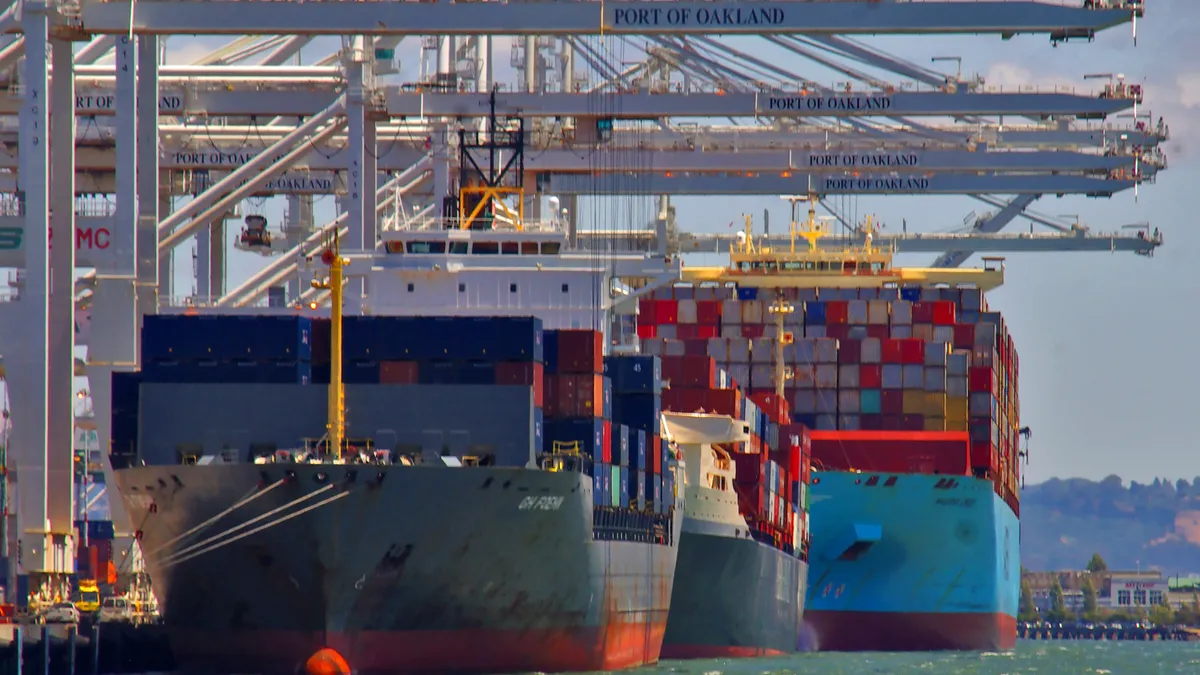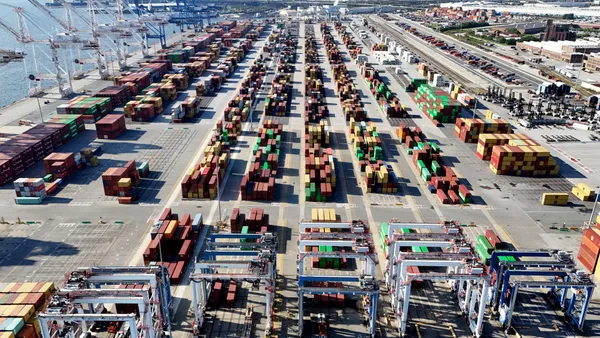The Freight Logistics Optimization Works initiative now reaches all the top container ports in the U.S. West Coast, the Department of Transportation announced last month.
The milestone came as the Port of Oakland and Northwest Seaport Alliance — which includes the seaports in Seattle and Tacoma, Washington — recently joined the federal supply chain data initiative. The Port of Los Angeles and Port of Long Beach had previously joined. Collectively, the ports comprise about 95% of inbound container volume to the West Coast, according to the DOT.
FLOW, as the initiative is known, is working to make data-sharing more feasible and improve visibility as a way to combat potential supply chain challenges. The program boasts more than 170 active or currently onboarding shippers, carriers and other supply chain stakeholders, Transportation Secretary Pete Buttigieg told Supply Chain Dive in a July interview.
FLOW participants share key information, including import purchase orders and the amount of cargo that is headed to specific ports. The data is intended to help shippers better plan their logistics moves and forecast potential congestion at ports.
“By sharing data and insights, we can collectively optimize freight movement, reduce congestion, and strengthen the resilience of our region’s logistics network,” Toshiko Hasegawa, Port of Seattle commissioner and co-chair of The Northwest Seaport Alliance, said in the release.
Companies such as Home Depot, ITS Logistics, C.H. Robinson Worldwide and IMC Companies leveraged the platform during the Baltimore bridge collapse to relay useful information and identify pain points amid disruption.
However, several shippers who are members of FLOW have voiced the need for more data to help in the decision-making process when moving freight.
“As that data gets richer, and as that data gets better, I think it’s got a lot more applicability, and there will be higher levels of confidence on making decisions strictly on the FLOW data,” Jennifer McNeill, SVP of supply chain operations at True Value, told Supply Chain Dive in May.














